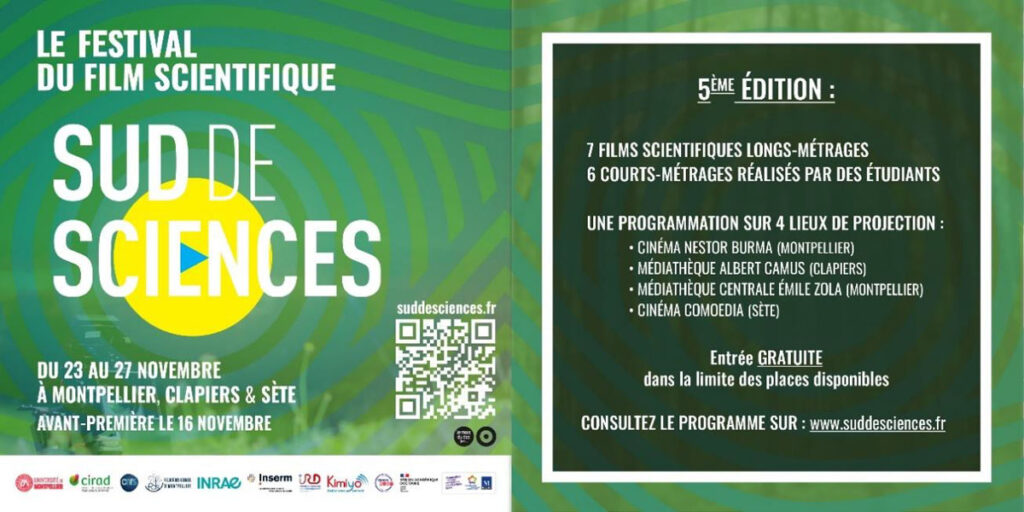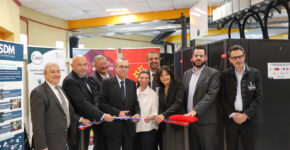When science takes center stage
This event is over!
The science film festival Sud de sciences returns for its5th edition. Seven feature-length films, most of them co-produced by research organizations, and six short films by students will be in competition this year. Screenings are free and open to all, and will take place in Clapiers, Montpellier and Sète.

Dengue, Chikungunya, Ebola and, of course, Covid-19, emerging diseases have been on the increase over the last forty years. How can this proliferation be explained? That's the question addressed by the documentary La fabrique des pandémies. The film was shown on November 16 at the Nestor Burma municipal cinema, as part of the preview of the Sud de sciences festival, which runs from November 23 to 27.
Launched in 2018 in Montpellier, Sud de sciences follows in the footsteps of the Paris Sciences science film festival, with the added aim of " being entirely free and accessible to all," stresses Agnès Pesenti, head of scientific culture at the University of Montpellier. Through this event, the university is reaffirming its commitment to strengthening relations between science and society by screening scientific films, followed by discussions with researchers. Sud de sciences is also part of the program for the Mois du doc, a national event organized every November to promote documentary films to the general public.
Seven documentary films
For this fifth edition, seven feature-length documentaries in the professional category have been selected by a steering committee made up of researchers fromIRD, CIRAD, CNRS,INRAE andINSERM. All five organizations are partners in the festival and co-producers of some of the documentaries featured. " The films were chosen for their documentary and cinematographic quality, of course, but also for their relevance to the major areas of research developed in Montpellier ," explains Agnès Pesenti.
Each screening will be followed by a discussion with a Montpellier researcher specializing in the subject, to answer questions from the audience and put topical issues into perspective. The magnificent documentary Mamody, le dernier creuseur de baobab (Mamody, the last baobab digger ), filmed in south-west Madagascar, raises the question of access to water. Quand l'homme n'est pas là, les animaux dansent shows how wildlife was able to reinvest cities during the few weeks of confinement. Climat : mon cerveau fait l'autruche questions our inertia in the face of predicted ecological catastrophe...
Student short films
A new feature at this year's festival is a new prize in the "Student Film" category. Each feature film will be preceded by a short film made by science students. We put out a national call for films and selected six in all," continues the head of scientific culture. As with the feature films, the shorts will be put to the public vote (see box) and rewarded with a prize at the close of the festival.
Another new feature for 2022: the screening venues. " Thanks to a strengthened partnership with the City and Metropolis of Montpellier, this year we'll be screening in venues that enable us to welcome a larger and more varied audience," enthuses Agnès Pesenti. The festival kicks off on Wednesday November 23 with a screening at the Clapiers media library, before moving on to the Emile Zola media library in Montpellier for the rest of the week. On Sunday, a final screening will take place at Sète's Comoédia cinema, with a rerun of Mamody, le dernier creuseur de baobab.
- View program
- Website: suddesciences.fr
